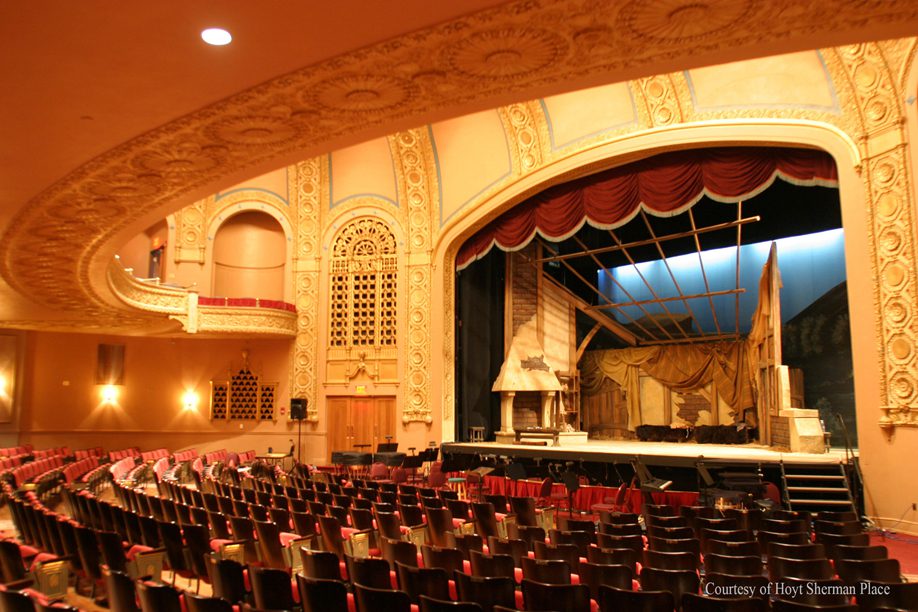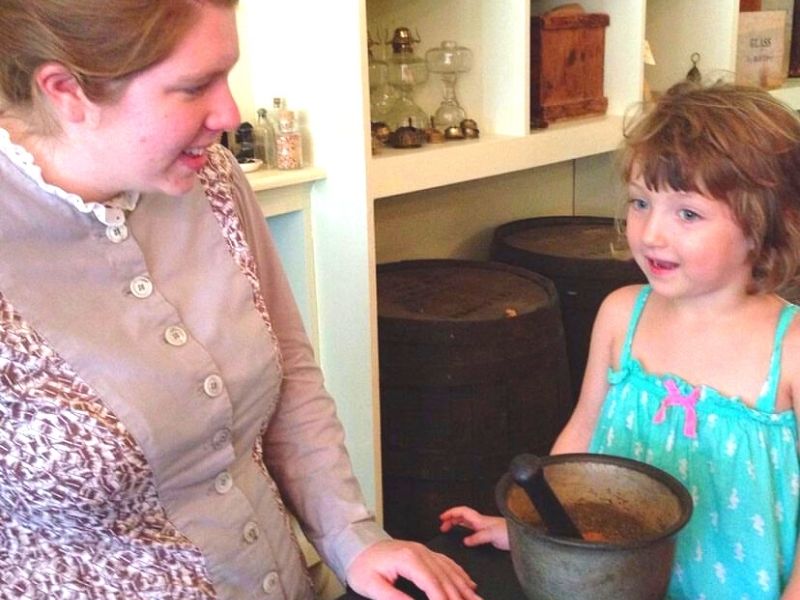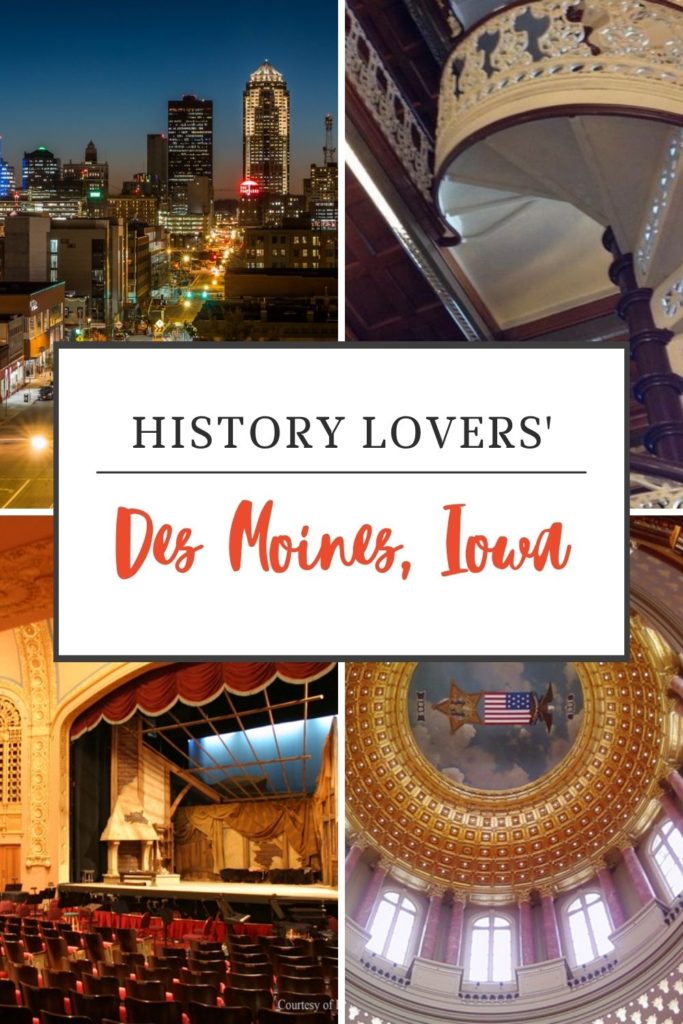When it comes to exploring local history, there are lots of ways to take a journey through the past in Des Moines. From historic homes to award-winning museums, there’s something from everyone to experience. Whether you have an hour or an afternoon, Des Moines has ample options to learn more about the area’s past.
The next time you want to learn more about local history, consider checking out one of these Des Moines attractions for history lovers.
Hoyt Sherman Place
Not only is Hoyt Sherman Place a unique place to catch a concert, but it’s also full of local history. Built in 1877 as the home of Des Moines postmaster Hoyt Sherman, this historic building has also served as the first Mercy Hospital and the home of the Des Moines Women’s Club.

More than 100 years after it was first built, this iconic building is still a popular gathering place. If you’re seeing a show at this venue, plan to arrive early to wander its halls and check out the impressive art gallery.
Hoyt Sherman Place, 1501 Woodland Ave., Des Moines
Fort Des Moines Museum & Education Center
Located on the city’s south side, the Fort Des Moines Museum highlights the history of the area’s African American men who served in World War I and the Women’s Army Auxiliary Corps (WAAC) of World War II. If you’re interested in the history of racial and gender equality in the United States Army, this museum is for you.
In the 1910s, Fort Des Moines served as the U.S. Army’s first officer class for African American men. From that program 639 men graduated as commissioned officers and went on to serve in World War I. Later on Fort Des Moines was the site of the first training school for female commissioned officers who went on to serve in World War II.
Currently, the museum is open by appointment only.
Fort Des Moines Museum, 75 E Army Post Road, Des Moines
Living History Farms
Explore 300 years of history in one place at Living History Farms in Urbandale. This unique attraction brings history to life through an interactive, 500-acre outdoor museum.

Four distinct historic farms embody what Iowans experienced from the 1700s into the late 1800s. All of the farms are authentically farmed based on the time period they represent and staffed by historical interpreters who bring glimpses of the past to the present.
Living History Farms, 11121 Hickman Road, Urbandale
Salisbury House & Gardens
Built in the 1920s and modeled after the King’s House in Salisbury, England, Salisbury House & Gardens is a historic gem tucked into a quiet residential neighborhood. Constructed as a private home by cosmetics mogul Carl Weeks and his wife, Edith, the Salisbury House contains authentic detailing like English oak woodwork, flintwork and rafters dating back to Shakespeare’s time.
Equally impressive is the family’s well-preserved collection of original art, tapestries, rare books and antique furnishings. Today the house is open to the public for tours as well as a variety of public programs throughout the year.
Salisbury House & Gardens, 4025 Tonawanda Drive, Des Moines
Iowa State Capitol
Touring the Iowa State Capitol is an awesome way to learn about the state’s history. Not only is the Capitol rotunda a great photo op, but the dreamy state law library is not to be missed.

The Capitol building is open to visitors Monday through Saturday. Private tours can also be booked for groups of 10 or more.
Iowa State Capitol, 1007 E. Grand Ave., Des Moines
State Historical Museum
Located in the State Historical Building of Iowa, this general interest museum features a variety of rotating exhibits about different aspects of the state’s history. Discover how Iowa became a state, explore its natural resources, learn about Iowa’s connections to Hollywood, and take a spin through the history of bicycling in Iowa.
State Historical Building, 600 E. Locust St., Des Moines
Related post: While you’re downtown, check out some of the best restaurants in the city!
Terrace Hill
Completed in 1869, Terrace Hill was originally built as a private home by Benjamin Franklin Allen. This 18,000-square-foot, Victorian Second Empire home is truly an architectural marvel with brightly colored stained glass, intricate woodwork and more. The home remained a private residence for almost 100 years before it was donated to the state of Iowa.
Today, Terrace Hill serves as the Iowa governor’s residence but is also open to the public for tours and events. One-hour tours of the historic property are offered seasonally from March through December.
Terrace Hill, 2300 Grand Ave., Des Moines
Woodland Cemetery
Located just north of downtown, Woodland Cemetery is a unique piece of local history. This 65-acre cemetery was established in 1851 before the city’s official founding. Not only does the cemetery serve as the final resting place for notable Des Moines names like Hoyt Sherman but it is also the location of an unusual Children’s Monument installed for the many unnamed babies laid to rest in the cemetery.
Woodland Cemetery, 2019 Woodland Ave., Des Moines
World Food Prize Hall of Laureates
Originally built as the Des Moines Public Library Building, the World Food Prize Hall of Laureates underwent a $29.8 million renovation to pay tribute to Dr. Norman Borlaug and the programs he created, including the World Food Prize Foundation.
The Beaux Arts style building was built using a unique salmon pink, Minnesota limestone and was a project of the Works Progress Administration. Today, the building is open to the public for both self-led and docent-led tours.
World Food Prize Hall of Laureates, 100 Locust St., Des Moines

About the Guest Blogger
Megan Bannister is a freelance writer and blogger at Olio in Iowa based in Des Moines, Iowa. When she’s not sampling and writing about food, Megan enjoys visiting unique destinations, roadside attractions, and “world’s largest” things across the Midwest and beyond. Her book, Iowa Supper Clubs, highlights classic eateries past and present from around the state.